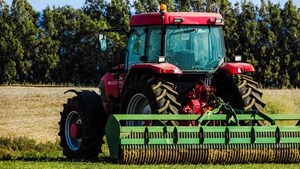
How Does the Heat Treating Industry Affect Agriculture and Farming?
Posted on May 24, 2017 in Blog

Agriculture and farming are a bigger part of our daily lives than we may realize. Without the hardworking men and women in these sectors, the food that we consume throughout the day would undoubtedly look a lot different than it does now. Yet, many people don't realize that the farming industry is dramatically affected by another - the heat treating industry.
What is Heat Treating?
Heat treating itself dates back to ancient times. A simple iron cast is naturally very brittle - if you hit it hard enough, it will shatter every time. If you heat the iron again and again, however, it becomes stronger. This is the simple concept at the heart of the heat treating process and the industry overall.
Those same basic ideas that were originally used to make cast iron stronger are now being used to make steel farm equipment stronger, too. This has actually been in practice since the 1930s and is particularly helpful due to the way farm equipment is built.
Why Heat Treating Matters
Agriculture and farming equipment is traditionally manufactured through a cast iron or cast steel process, but this is potentially problematic for a few reasons. The point where two pieces join together - called the weld point - represents a potential vulnerability for the entire machine. It's weaker than everything else and thus more likely to break down, causing unnecessary delays and cost overruns for jobs that are supposed to be straightforward.
Heat treating, on the other hand, changes all of that. Not only does it make individual pieces stronger, it also helps cut down on the number of parts needed in the first place. So not only can individual parts stand up to more daily use, less parts are needed for a much more valuable end result.
The LindbergMPH Approach
At LindbergMPH, we deeply believe in the major benefits that the heat treating industry brings to the table in terms of agriculture, farming and beyond. Thanks to heat treating techniques like hardening and tempering, nitriding, carburizing and more, equipment suppliers are able to manufacturer higher quality farming equipment that is durable enough to withstand the grueling work load of the agricultural industry. Stay tuned next month to learn about how heat treating plays a role in the production of equipment used to take care of your yard.

